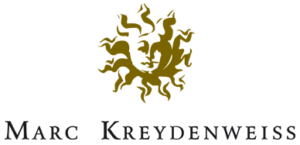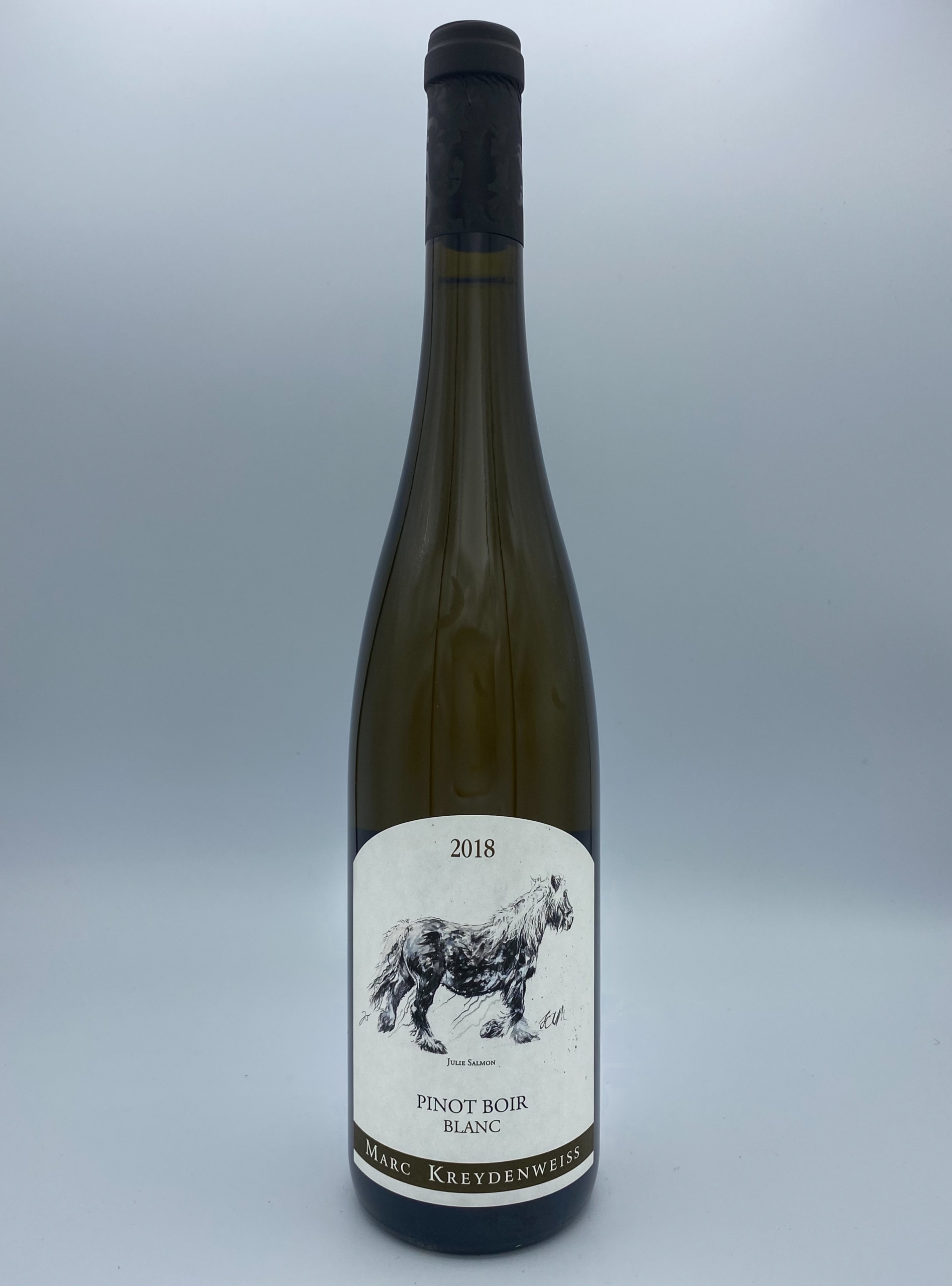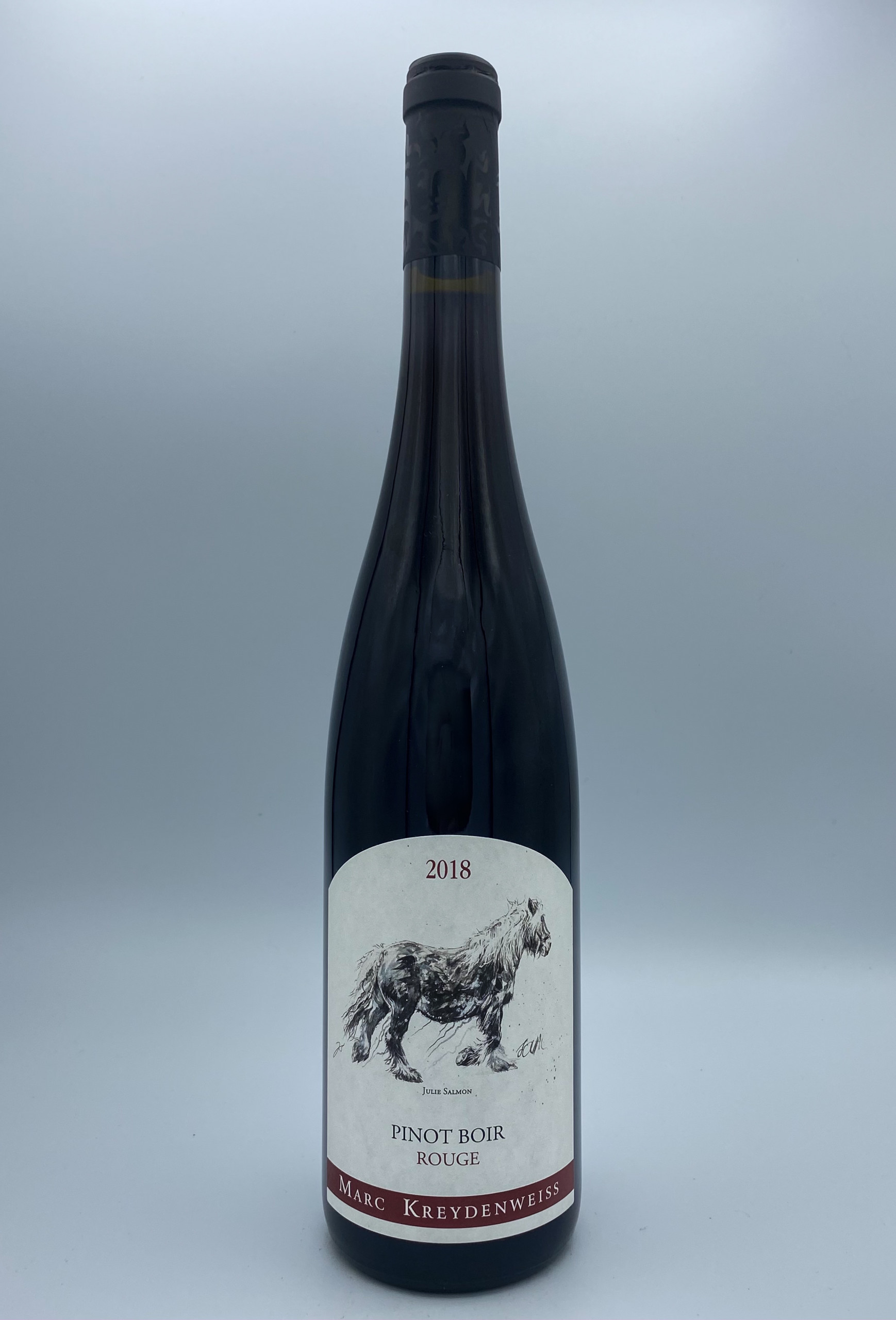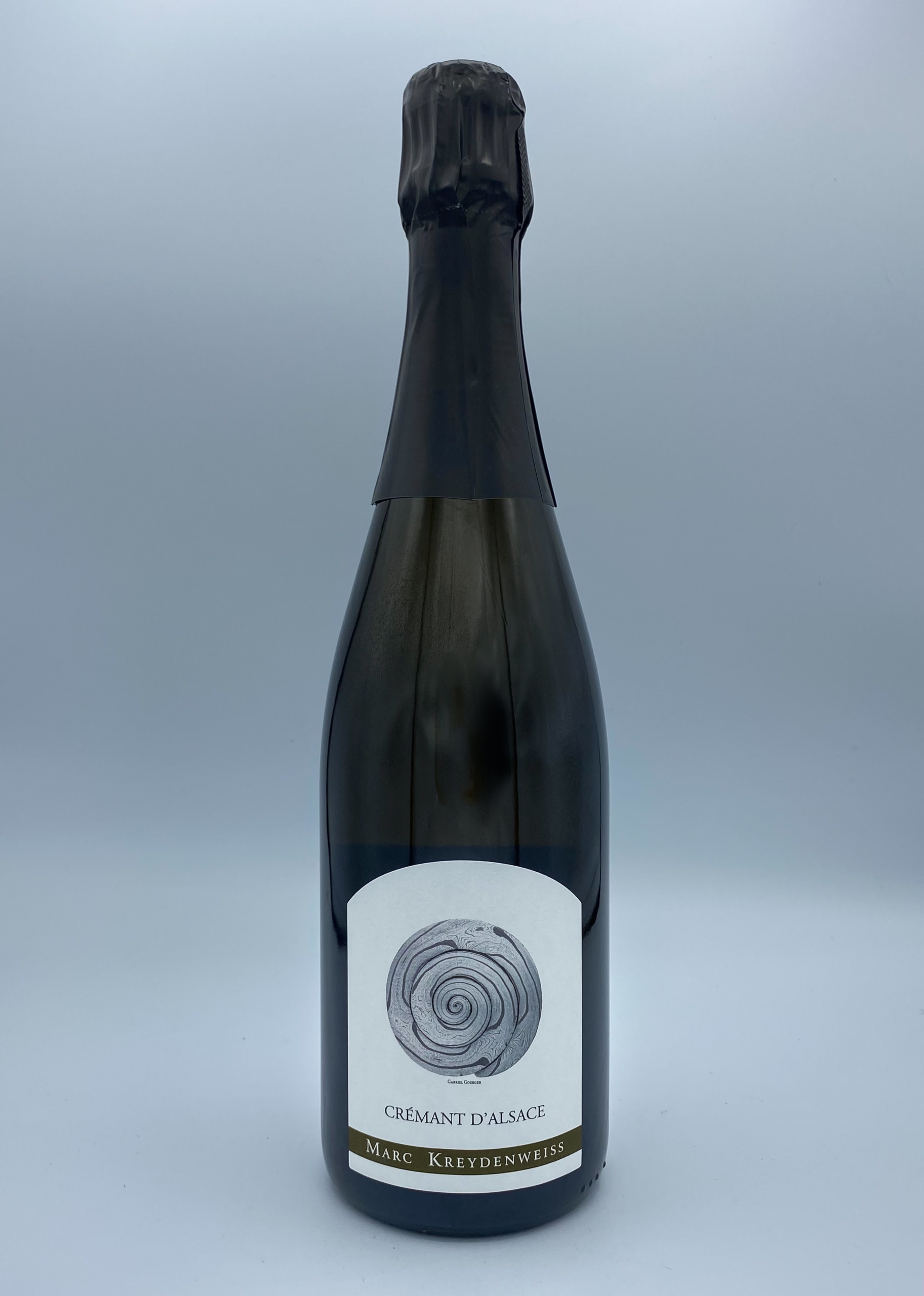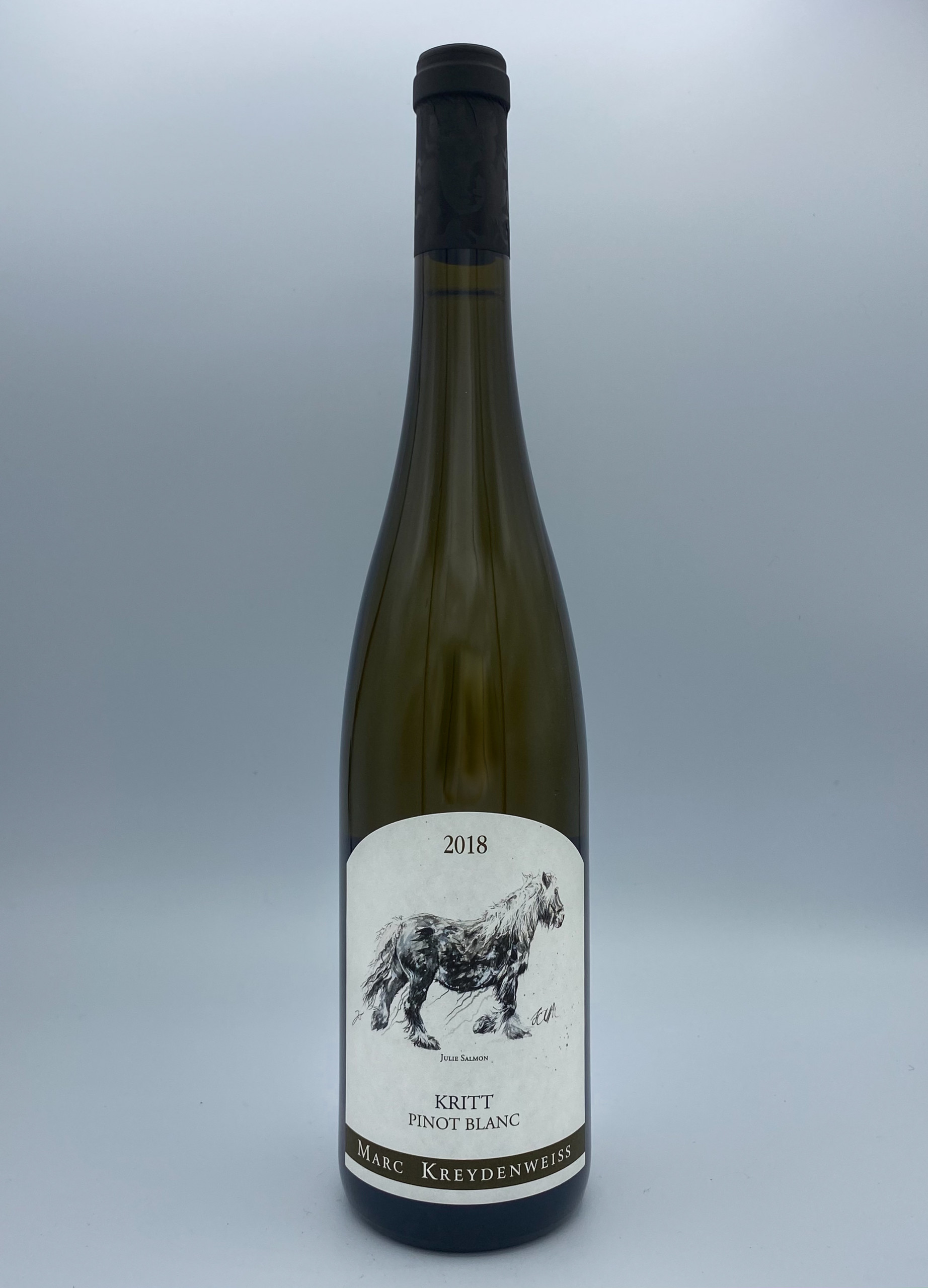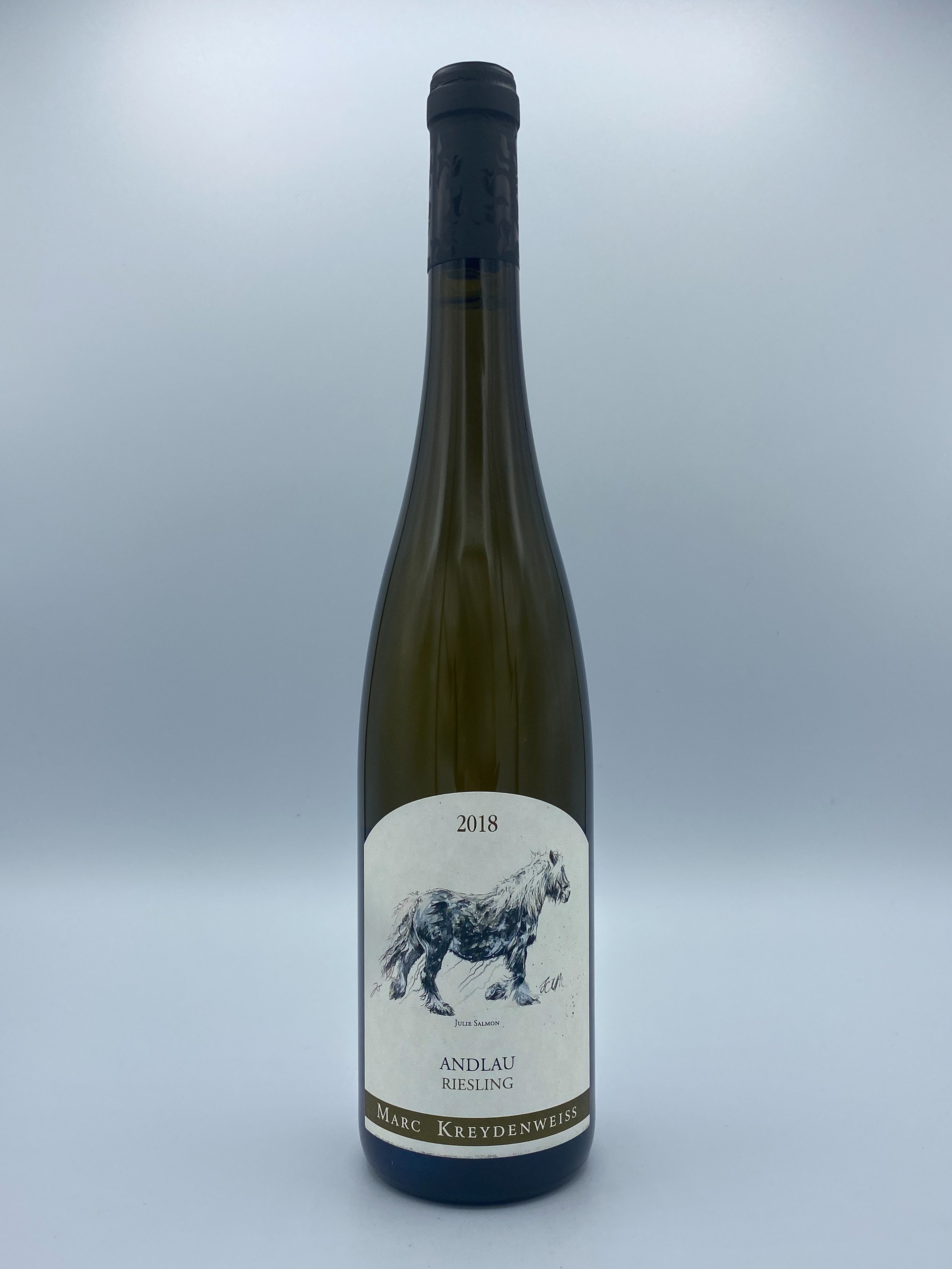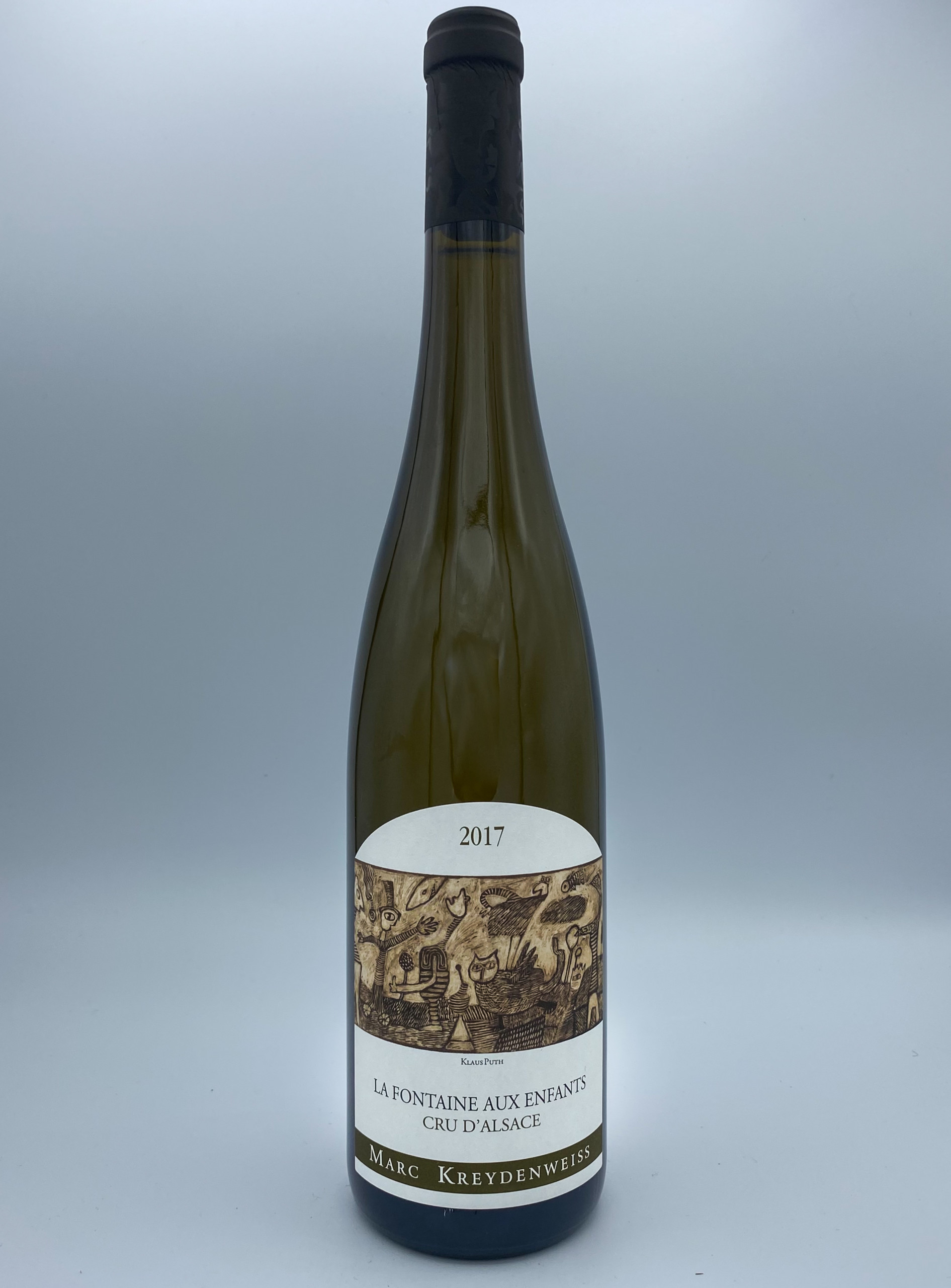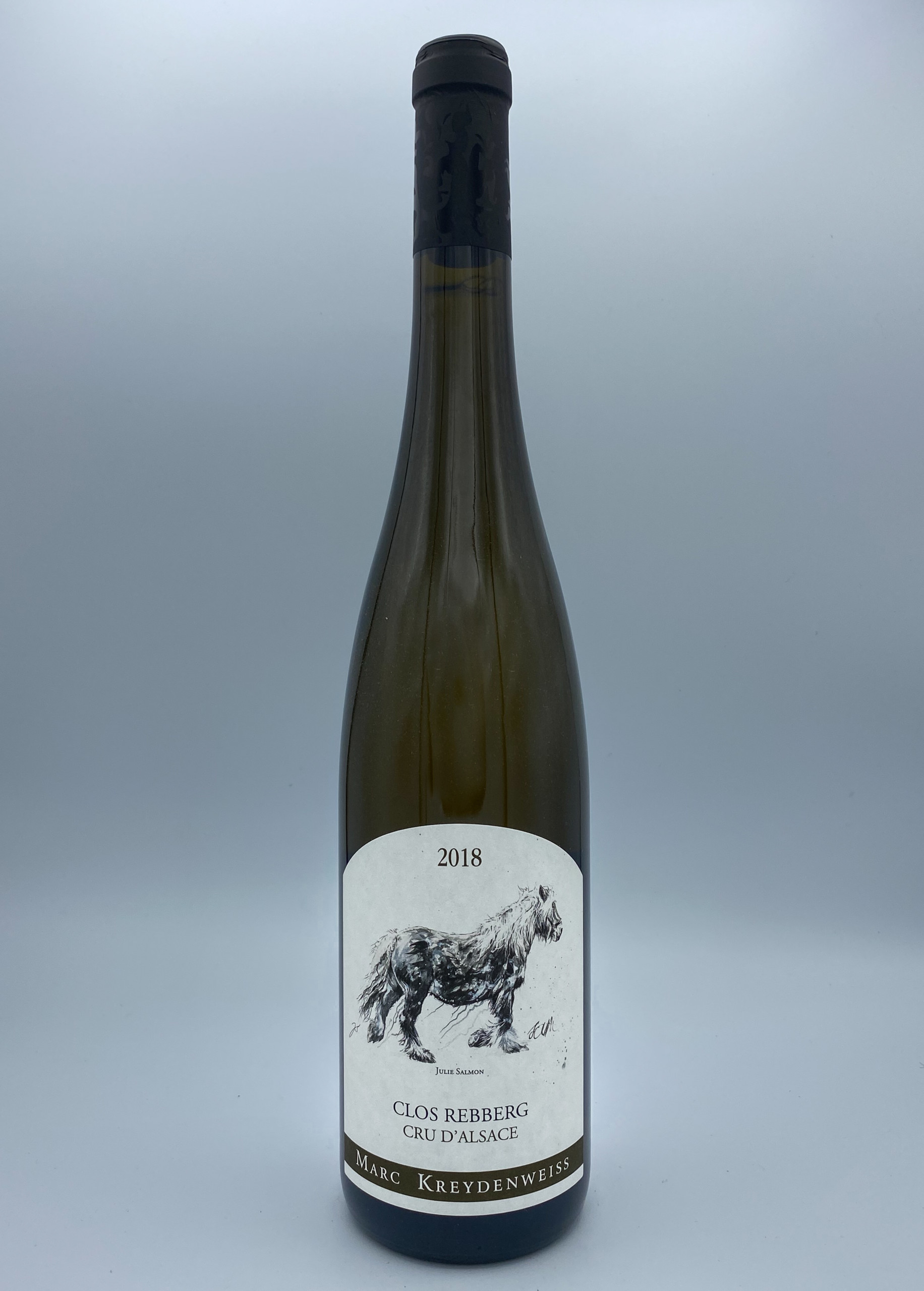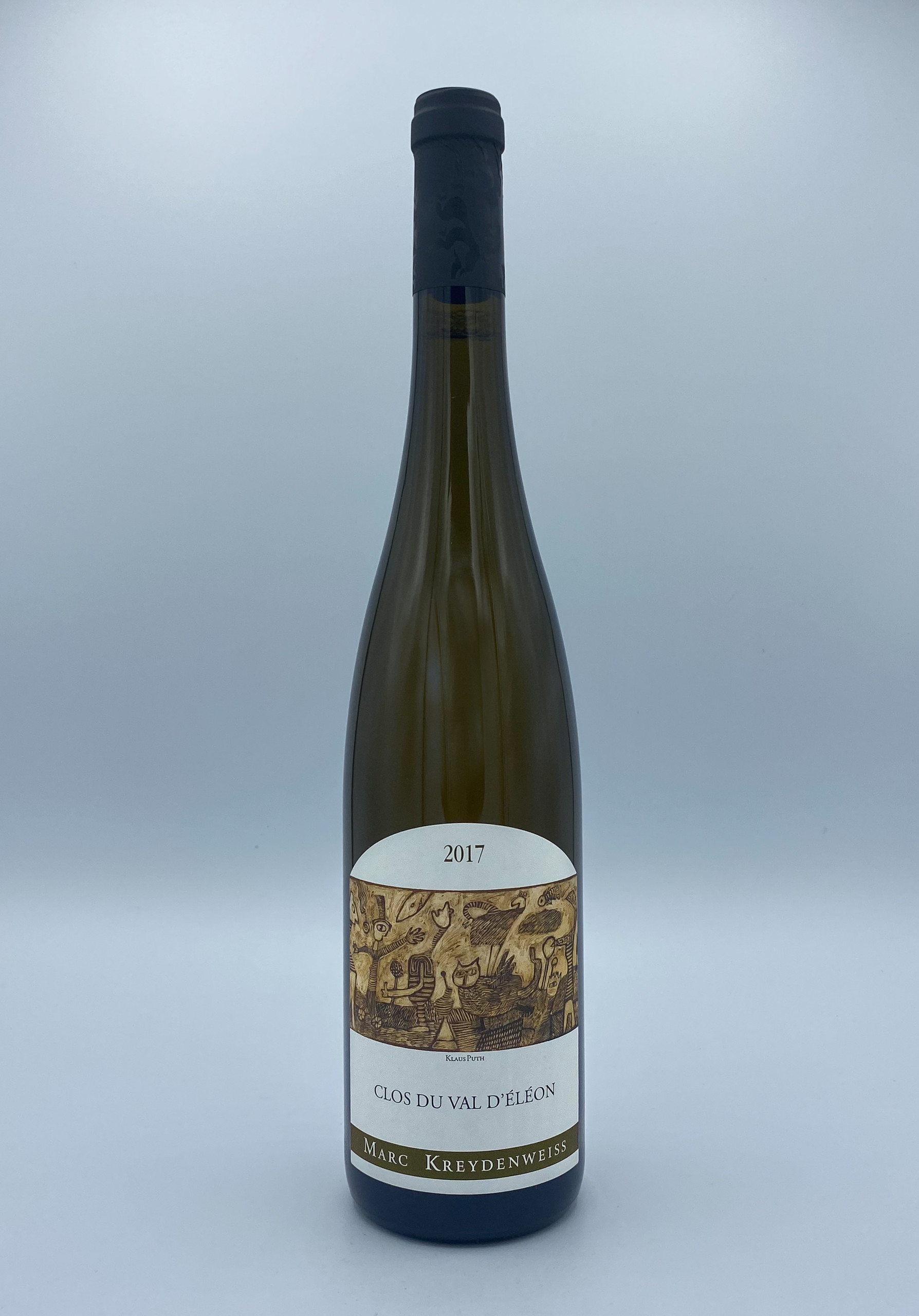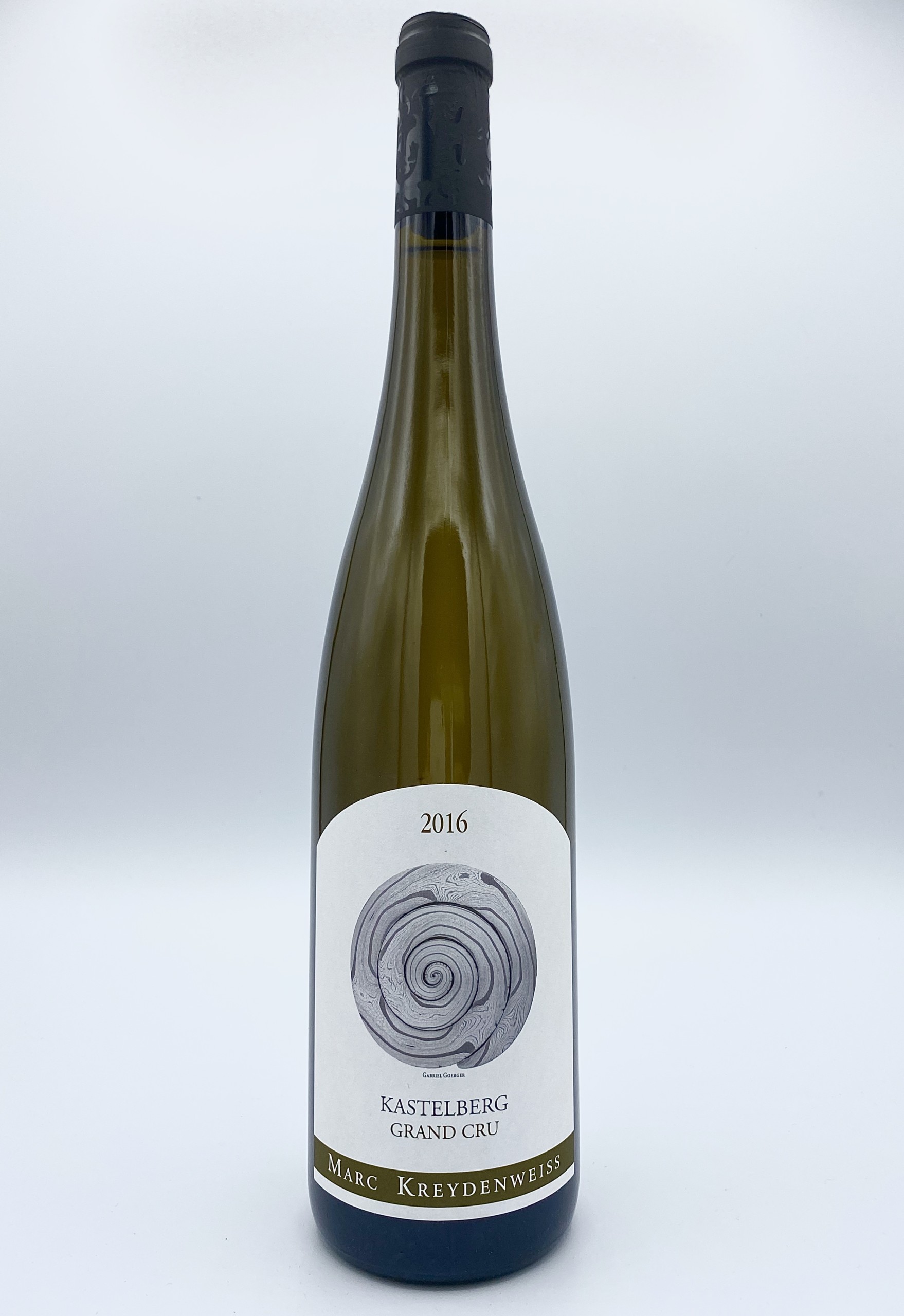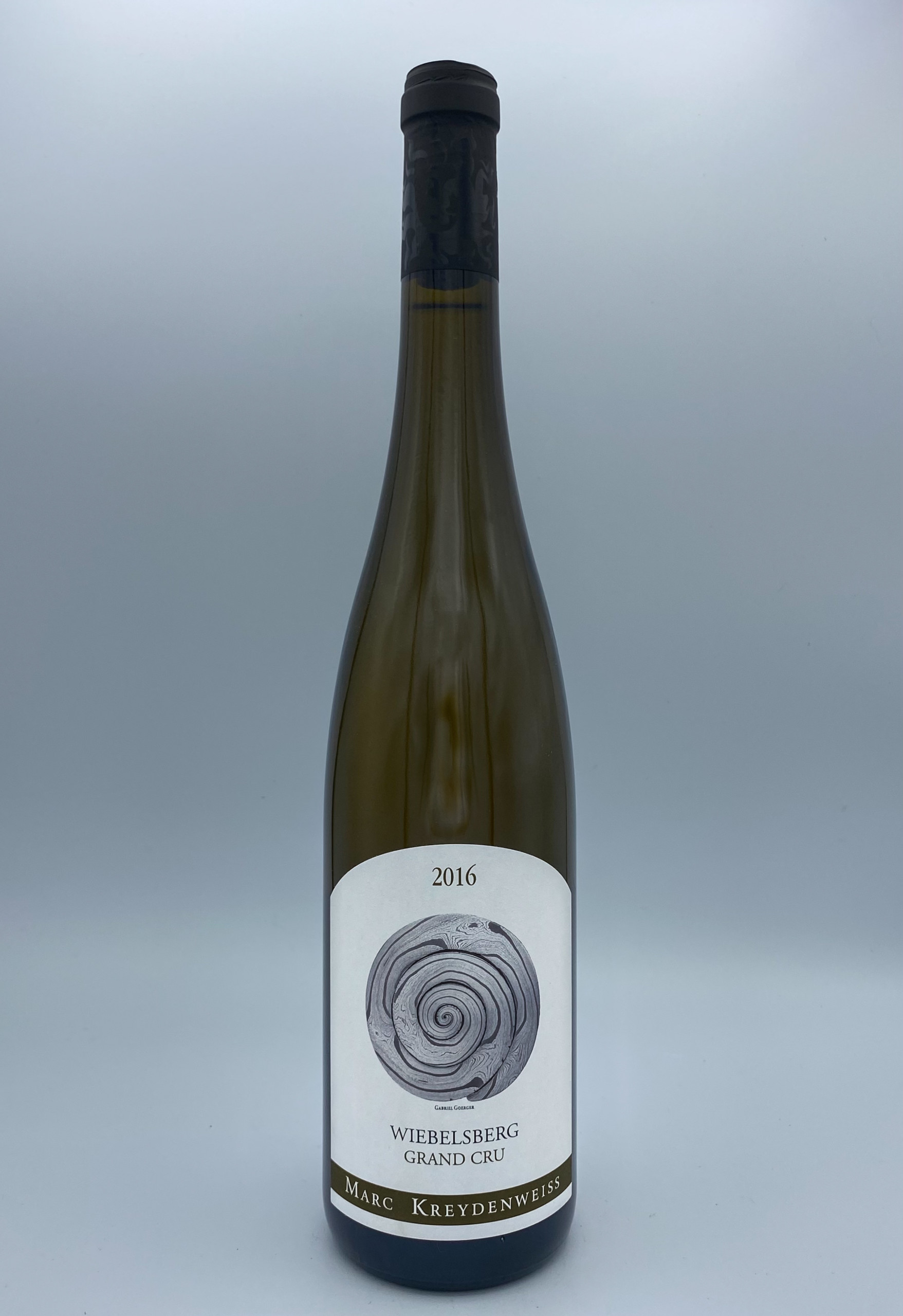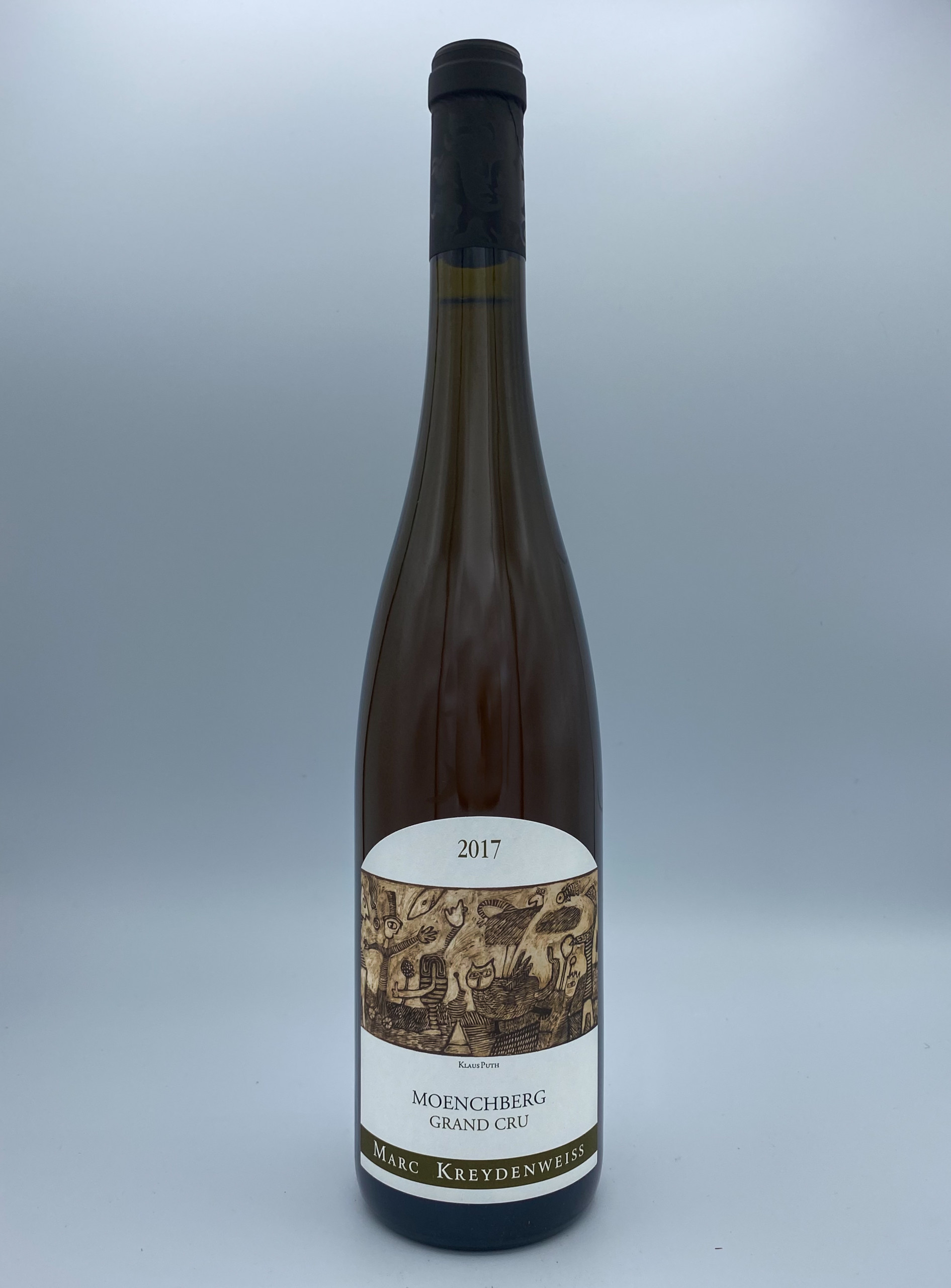Domaine Marc Kreydenweiss
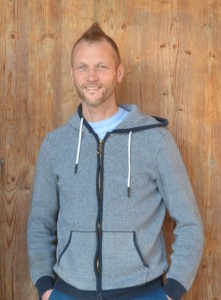
Antoine Kreydenweiss
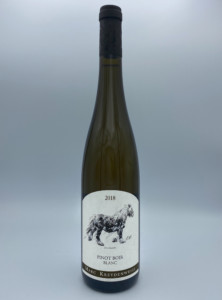
Kreydenweiss Pinot Boir Blanc
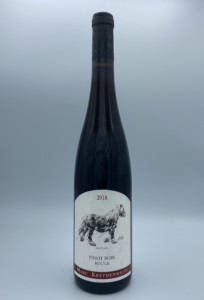
Kreydenweiss Pinot Boir Rouge
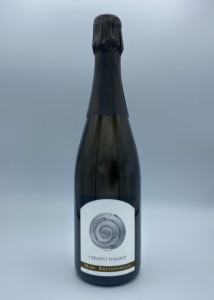
Kreydenweiss Cremant d’Alsace
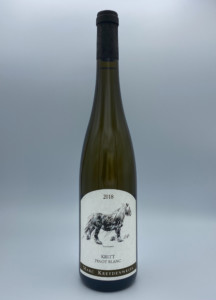
Kreydenweiss Kritt Pinot Blanc
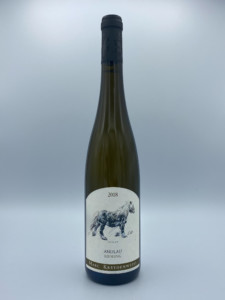
Kreydenweiss Andlau Riesling
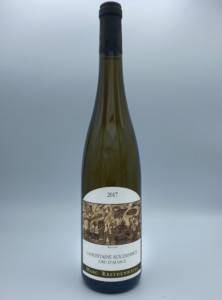
Kreydenweiss Fontaine aux Enfants
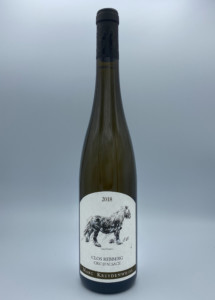
Kreydenweiss Clos Rebberg
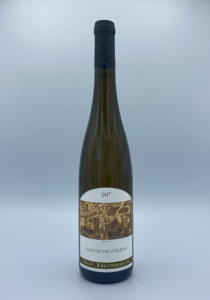
Kreydenweiss Clos du Val d’Eleon
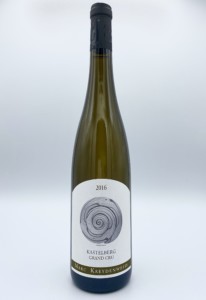
Kreydenweiss Grand Cru Kastelberg
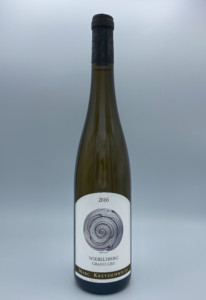
Kreydenweiss Grand Cru Wiebelsberg
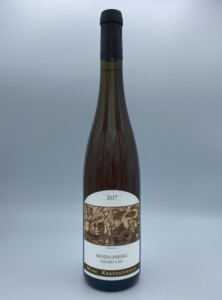
Kreydenweiss Grand Cru Moenchberg
About
Owner & winemaker: Antoine Kreydenweiss
Vineyards: 13.5ha across 25 different parcels including four Grands Crus
Vineyard management: Certified organic through Ecocert, and certified biodynamic through Biodyvin
Soils: Varied, including clay with quartz, blue-grey schist, black schist, clay-silt, granite, clay-limestone, marl, sandstone, sand, and glacial deposits
Grapes grown: Riesling, Pinot Blanc, Auxerrois, Pinot Gris, Pinot Noir, Gewurztraminer, Muscat
Annual production: 100,000 bottles
Quick facts:
- Alfred Gresser, an ancestor of Marc and Antoine, won a prize for his wines in a tasting competition in 1850. He was a pioneer of selling wine in bottles, which was very uncommon at the time.
- Every year since 1984, Domaine Marc Kreydenweiss has invited an artist to taste the wines of a particular vintage and use them as inspiration to create the labels for that year’s wines.
- “The bomb is dropped, the terroir must dominate the grape variety.” – Marc Kreydenweiss, explaining his at-the-time avant-garde focus on the pure expression of terroir
Born in Strasbourg in 1948, Marc Kreydenweiss is the heir to an Alsatian viticultural tradition spanning three centuries and thirteen generations. After taking over the family estate in 1971, Marc made the decision to exclusively produce wines based on the expression of the unique terroir around his village of Andlau. One of the earliest proponents of biodynamic viticulture in Europe, Marc began using homeopathic treatments and practices, encouraging well-balanced and living soils that yield healthy and high-quality grapes. Marc’s son Antoine took over the management of the estate in 2007 and is accompanied by his wife Charlotte, their daughters Zoe, Lilou, and Leonie, and their plow horse Sam. “Following my ancestors, I continue this quest,” Antoine avows. “Biodynamics and respect for our environment are part of my deep convictions. Let’s not forget that we borrow the land from our children, the life of our soils and biodiversity is our leitmotiv. My vision is to produce wines of singular expression, wines from a single vineyard and terroir, without concession, without artifice, without dogma and without limits.”
The valley of Andlau is home to a number of different microclimates within a relatively small area, with schist, granite, and quartz soils and four different Grands Crus (Kastelberg, Wiebelsberg, Moenchberg, Kirchberg de Barr), allowing the winemaker to make a wide range of wines expressing their respective terroirs. Many of the vineyards are on extremely steep hillsides which cannot be mechanized and must be farmed by hand. Most of the hard work is done in the vineyard, allowing Antoine to use a light hand in the cellar. Following whole-bunch pressing, wines are fermented spontaneously with native yeasts, then undergo natural malolactic fermentation. They are aged in the tradition style: in foudres and on the lees for an extended period, up to three years. Minimal sulfur is added. Antoine’s goal is to produce “vibrant and lively wines with a textured mouthfeel, wines that do not leave people indifferent but that also do not please everyone”–wines that reflect who he is.

